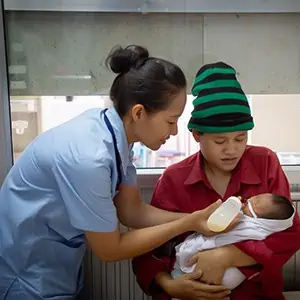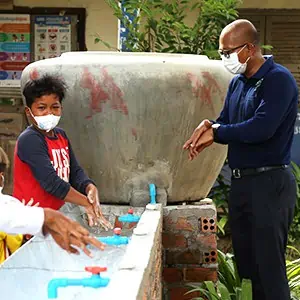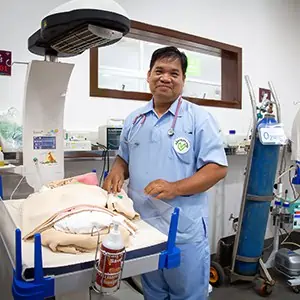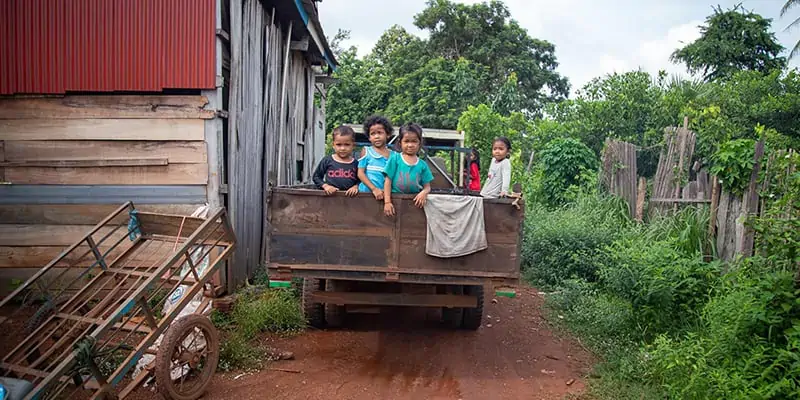Malnutrition does not discriminate. Across communities, its incidence is also increasing.
In AHC’s hospital wards, the nutrition team face the result of poor and uneducated families not feeding their children correctly. Throughout the villages surrounding Siem Reap, AHC’s community outreach team see the same.
“Almost all of the malnourished children we see in-hospital come from rural villages. These communities often do not understand or cannot afford proper nutrition for their child. That is why my team and the community outreach team focus on building the knowledge of these rural communities to prevent malnutrition during the global COVID-19 pandemic.” – Phannsy Sroeu, AHC nutrition nurse
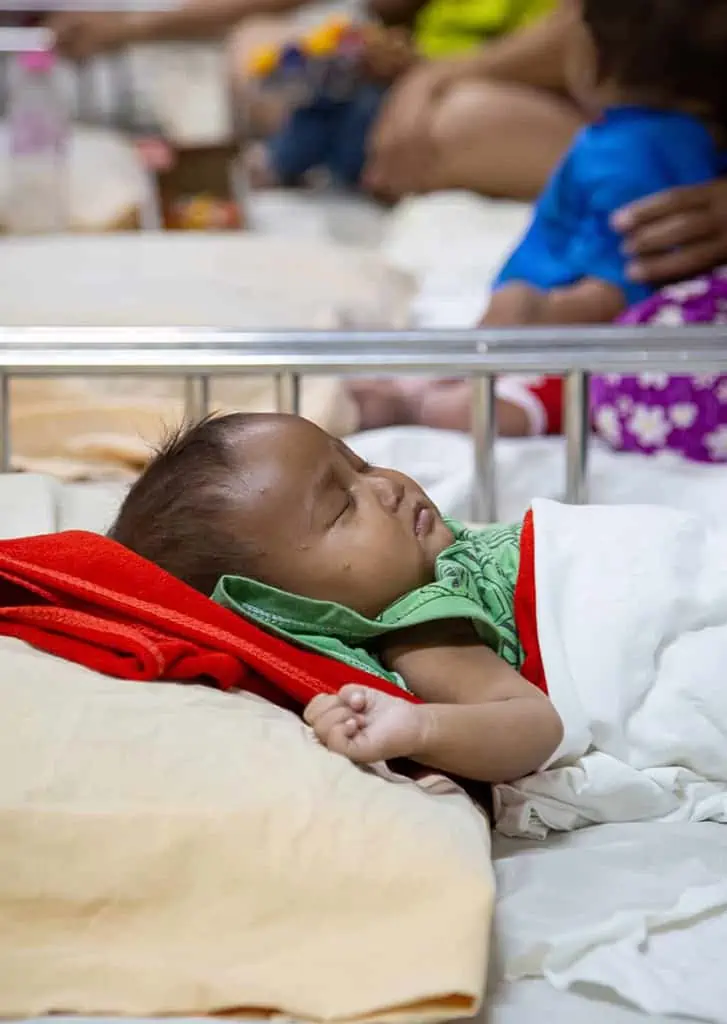
In November 2020, seven-month-old twin boys were admitted to AHC with cases of kwashiorkor; a severe deficiency in protein caused by sufficient calorie intake, but with insufficient protein consumption.
AHC staff discovered that the twins’ parents had stopped feeding their children baby formula due to financial difficulties caused by COVID-19. The twin’s father had been without steady income for six months, struggling to find construction work during the global pandemic. Instead of feeding the twins formula, the parents had resorted to feeding them condensed milk from a can, diluted with water. The twins were fed this unhealthy, high-sugar diet for three months before their condition had seriously deteriorated to the point of hospitalisation.
“The parents were unaware of the dangers of feeding them condensed milk; they just wanted to save on food costs. We explained to them that when their child is fed, they can fight off illness, and avoid the need for unnecessary hospital and travel expenses. Saving them a lot more money in the long run while also protecting their children’s health.” – Phannsy Sroeu, AHC nutrition nurse
The twin boys required 20 days of inpatient hospital care at AHC, with daily special therapeutic feeding, until they had gained enough weight, and recovered from their kwashiorkor, to return home. The twins’ parents were given formula to take home, along with the enriched nutrition knowledge they gained during their stay at AHC, including daily cooking demonstrations and one-on-one consultation with the AHC nutrition nurses. The family also received financial support from the AHC Medical Social Work unit to help with travel, food packages and other expenses.
The AHC nutrition team and community outreach team work closely with one another to combat malnutrition, both in-hospital and in rural communities. The teams meet regularly to collaborate on efforts to improve child nutrition in the community so malnutrition is prevented before hospital care is needed.
After two years of operating in the Chi Kraeng district, the AHC community outreach team nears the completion of their programme in the area. The team have advanced the capacity of the local government health workers and 110 Village Health Support Group (VHSG) workers. Phoeurk Amra, Unit Manager of the AHC community outreach team, highlighted the good cooperation with the VHSGs, health centres, and provincial health board that has built over the years.
“We have confidence in the health centre and VHSGs to continue the hard work, because there is still a lot of work to be done. But everyone has worked together to prevent COVID-19 and also improve child nutrition in these communities, while myself and my team have learnt a lot that we will take to other districts in Cambodia.” – Phoeurk Amra, Unit Manager of the AHC community outreach team
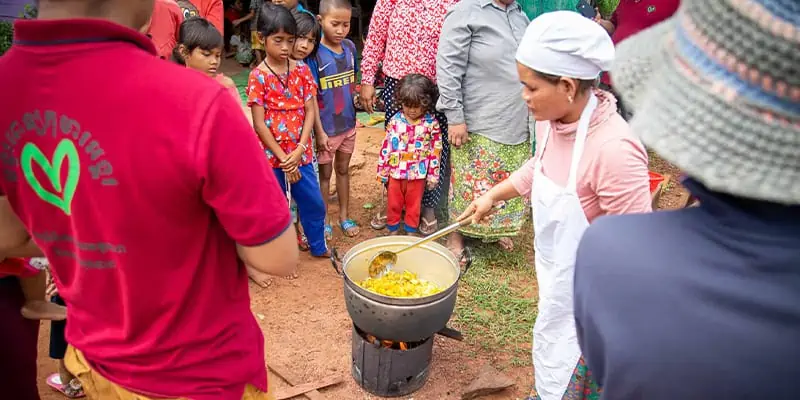
In 2020, with collaboration with VHSG the AHC community outreach team provided preventative healthcare education to over 180,000 villagers and screened over 4,000 children for malnutrition.
The team provide counselling and education to parents of MAM/SAM cases, along with supplementary food and vitamins, referring the most severe cases to AHC for further specialised treatment. The team then follow up each MAM/SAM case every month to examine the child’s progress. AHC’s sustainable approach to healthcare means training will continue for VHSGs beyond AHC’s phase-out in order for child nutrition and healthcare in the village to can continue progressing.
Phoeurk Amra is concerned about the impact COVID-19 may have on child nutrition but he has seen a marked improvement in personal hygiene in the community, following months of COVID-19 prevention education from AHC and the Cambodian Ministry of Health. “People are washing their hands more regularly and keeping their homes clean, which is helping stop the spread of COVID-19,” said Phoeurk Amra, “But it is also helping prevent illnesses like dysentery and other infections from spreading, which is important to helping protect children who may be malnourished.”
As 2021 begins, Cambodia has been fortunate to escape a full outbreak of the COVID-19 virus, instead feeling the economic hardship caused by the global pandemic. Phannsy Sroeu and Phoeurk Amra are both hoping for no outbreak of COVID-19 because of the devastation it would cause to these already vulnerable communities. For now, they and the rest of the AHC team will continue working together to protect Cambodian children by improving their nutrition, and strengthening the health system available to them, so they are well equipped to deal with any future adversity.
